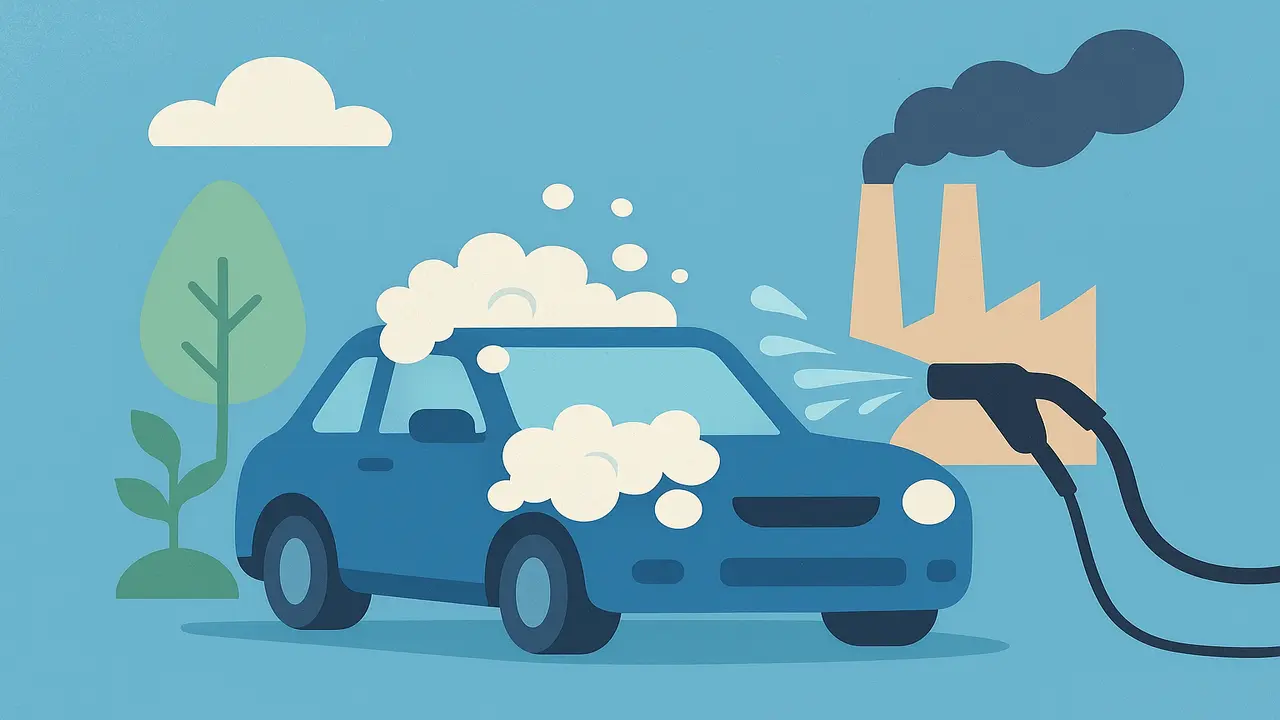Vehicle washing is an integral part of every vehicle’s upkeep. But washing a car often, especially with traditional methods, can seriously impact the environment. Although car cleaning keeps the car looking pristine, the ecological impact of cleaning your car is often ignored. In this article on car washing, we discuss the various environmental impacts of frequent car washing, such as energy consumption, water consumption, pollution, etc. And study the sustainable alternatives for reducing its impact.
Excessive Water Consumption
Reducing water waste is one of the biggest environmental issues caused by frequent car washing. Home car washes using the traditional methods use between 80 and 140 gallons (300 and 530 liters) of water per wash, depending on how they’re done. Automatic car washes are more variable in their water consumption; while older washes use approximately 45 gallons (170 liters), newer eco-friendly models can use less than 15 gallons (57 liters) to do the job.
Unsurprisingly, this over-saturation of water usage impacts water availability, particularly in drought-stricken regions around the world. The water removed by running water during the washing process often gets wasted and is not recycled, contributing to the greater depletion of freshwater resources.
Chemical Pollution and Runoff
However, one of the biggest issues with washing your car so often is the pollution created by the soaps and detergents used. The problem is that most car cleaning products include phosphates, surfactants , and other harmful chemicals that are washed off into storm drains and end up in natural bodies of water, like rivers, lakes, and oceans. Eutrophication, caused mainly by phosphorus ions, leads to the excessive growth of algae in the aquatic system. This overgrowth consumes oxygen, threatening aquatic beings and wreaking havoc on entire ecosystems. Furthermore, the water runoff also collects dirt, grease, oil, heavy metals, and brake dust, which are extremely toxic to marine life.
Soil Contamination
In driveways, streets, or unpaved surfaces, car washing allows contaminants that originate from the vehicle, oil, brake dust, and tire particles to seep into the ground. These pollutants can ultimately reduce the quality of soil and even leach into underground water reserves over time. This accumulation of heavy metals such as lead, zinc, and copper can cause grave dangers to both plant and animal life, throwing a wrench in local biodiversity.
Electricity use and carbon footprint
Washing a car often, particularly at commercial facilities, uses substantial energy powering pumps, blowers, and water heaters. Numerous car wash locations also use electricity sourced from fossil fuels, emitting greenhouse gases and contributing to climate change. Also, additional carbon is entering the atmosphere when water, detergents, and cleaning materials are transported. Osborne points out that washing cars at home with heated water also utilizes energy, thus raising utility bills and putting additional demand on energy. Gradually, these everyday uses end in larger environmental issues, especially in cities with a high degree of car ownership.
Microplastic Waste & Synthetic Waste
Also, by frequent washing, there is another lesser-known impact micro microplastics from synthetic sponges, microfiber cloths, and brush bristles released. These microplastics can enter the water system and ultimately wind up in oceans, which is particularly dangerous for marine organisms. When consumed by fish and other aquatic species micro microplastics easily enter the food chain and potentially pose health threats for humans.
Eco-Friendly Car Wash Alternatives
To limit the impact that regular car washing has on the environment, people might try some of the following:
Its usage also minimizes pollution with the help of eco-friendly detergents and water recycling through commercial car wash centers.
Waterless Car Washing Alternatives:
Conclusion
While it is nice to have a sparkling clean vehicle, as it adds to its aesthetics as well as is good maintenance for the car, washing is also one of the most polluting things you can do. All the elements, such as high water consumption, chemical pollution, soil pollution, energy consumption, and microplastic waste, lead to ecological damage. Individuals can conserve water resources and help protect the environment by using sustainable car washing methods and minimizing unnecessary washes. Small intentional choices made in how one approaches car maintenance add up to a healthier world for those to come.
Also Read
- Audi GT50 Concept: A Loud Reminder of Why Car Enthusiasts Fell in Love With Audi
- Nearly 30% of UK Drivers Believe Car Tax Should Be Based on Mileage — Survey
- Why Planes and Boats Escaped the Luxury Tax But Cars Didn’t
- Australia’s Headlight Confusion: Authorities Warn Drivers After Viral $250 Headlight Rule Goes Wild Online
- 2025 Hyundai Venue Facelift Launched in India – Full Details, Variants, and Price
